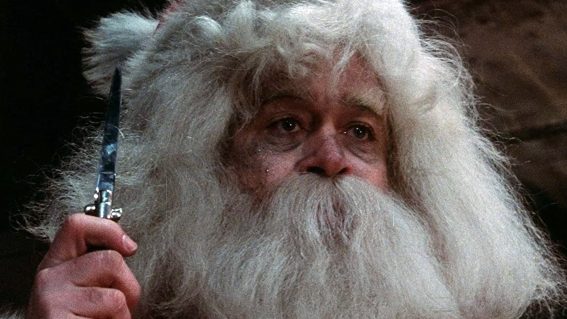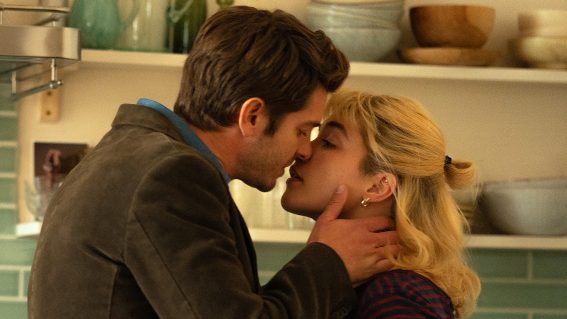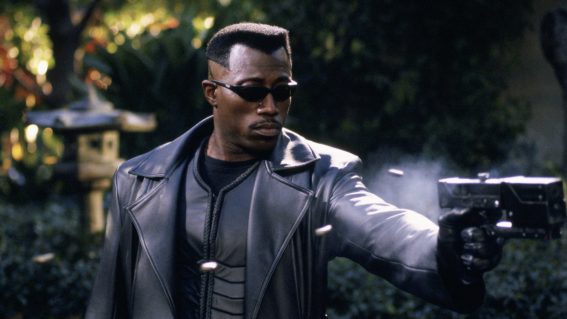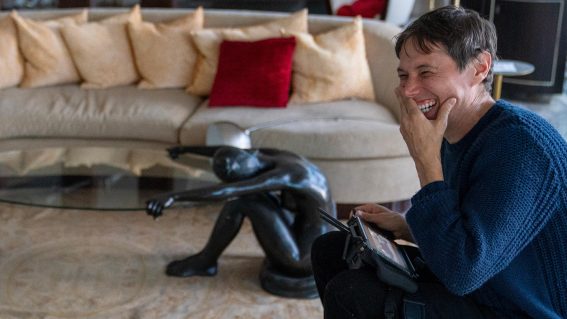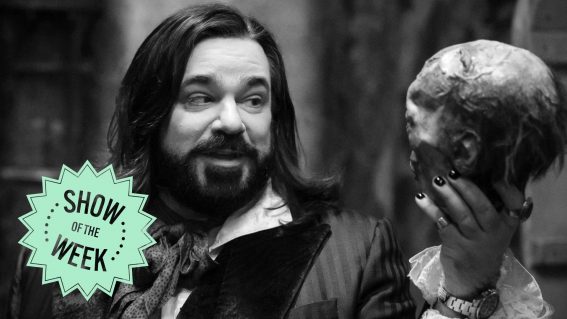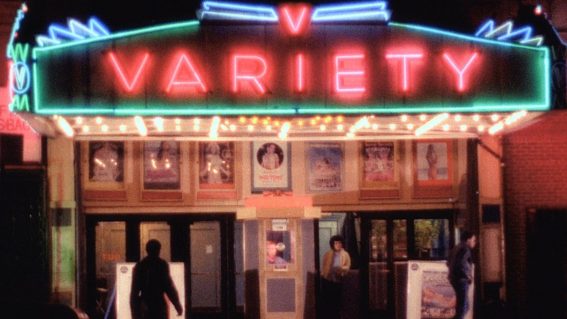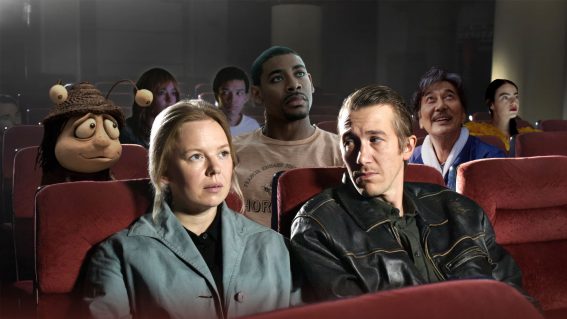If ‘Escape Plan’ Sucks, Watch These Prison Flicks
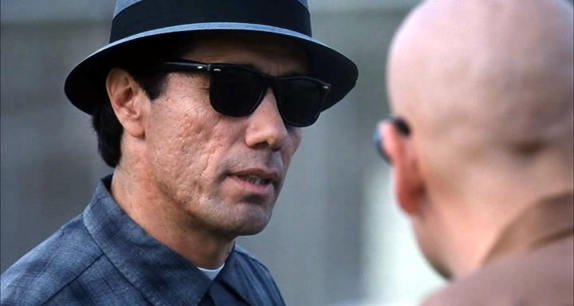

It feels like it’s been ages since we’ve had a solid prison movie, and I’m hankering for one. Recently I’ve been putting my money on the Arnie/Stallone team-up Escape Plan to fill this void, but my hopes of it being any good are growing dimmer by the minute. Not to pre-judge the movie to hell or anything, but the reviews stateside have been pretty lukewarm. So no, I am not optimistic. In the event you finally watch Escape Plan whenever it comes out and it does indeed suck the big one, here are five rad/underrated prison flicks you should definitely see after…
CAGED
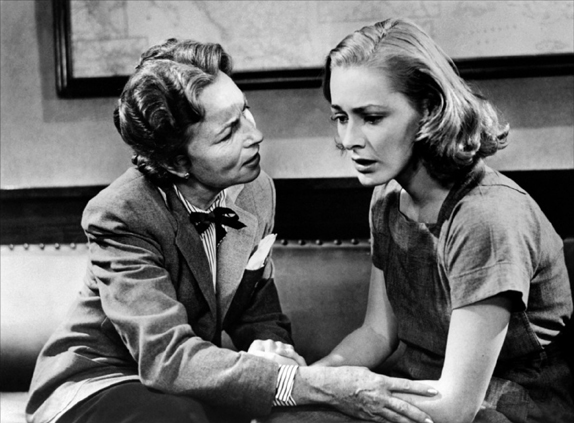
Been enjoying Orange is the New Black on TV, have ya? Here’s where it all started. One of the earliest, and best examples of the women-in-prison (WIP) picture, John Cromwell’s Caged (1950) offers a still-pertinent view of a deeply flawed penal system that fails its inmates by ineffectively rehabilitating them. With its vividly drawn characters and a stark, noirish feel, the film hasn’t lost much of its edge, observing the harsh realities of a State Women’s Prison through the naïve eyes of 19-year-old “new fish” Marie Allen (Eleanor Parker).
Caged has often, and unfairly, been categorised as “camp”, and while it’s true that Parker’s Academy Award-nominated performance does veer off into shrill overacting at points, the film is much too well-made to be completely written off as such. It’s much less exploitative than its counterparts of the ‘70s and ‘80s, but don’t worry, many genre staples are here — jaded, tough-talking lifers, solitary confinement, sadistic guards — so you won’t be mistaking this for a cheery Disney pic.
THE HILL
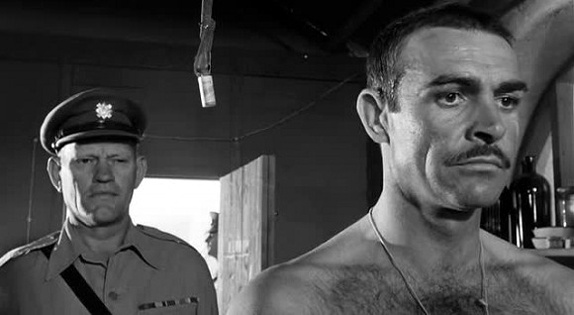
Brilliant, under-seen film from 1965 doesn’t get mentioned enough when discussing the careers of Sidney Lumet or Sean Connery. Set in North Africa during World War II, this high-tension drama unfolds in a British prison camp where the inmates, mostly deserters and insubordinate types, are made to endure gruelling punishment in the form of climbing up and down a steep man-made mound of sand until they collapse from exhaustion. Connery, just hot off Goldfinger, is Joe Roberts, one of five new prisoners entering the camp who quickly discover that the officer in charge of them, Williams (the positively loathsome Ian Hendry) is a serious a-hole.
While the film sets Williams up as the villain, Lumet, working with an intelligent script from Ray Rigby, examines various levels of conflict inside the camp — racial, political, personal — generating dissent within the ranks as much as the ever-escalating friction between the prisoners and their officers. The Hill is raw, strong stuff, with crackling performances and punchy monochrome cinematography that succeeds in making us feel every bead of sweat dripping from the characters’ sun-parched foreheads.
FEMALE CONVICT 701: SCORPION
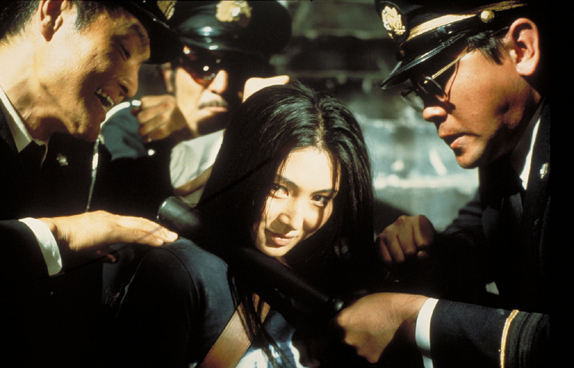
God bless the Japanese; they really know how to bring their prison A-game. Female Convict 701: Scorpion (1972) may not be as hallucinatory and amazing as its sequel Female Convict Scorpion: Jailhouse 41, but it’s a perfectly sleazy and out-there start to an exploitation series that surpasses similar American/European WIPs for sheer nastiness.
Lady Snowblood’s Meiko Kaji makes for a fiercely stoic angel-of-vengeance as Nami Matsushima, who’s been wrongly imprisoned after being betrayed by her narcotics officer boyfriend Sugimi. In this hellhole of a prison, she gets hogtied, hot miso soup poured over her, strung up by inmates and prodded like a piñata, and becomes the target of an assassin hired by Sugimi to knock her off. Packed with outrageous violence, stylized sets and dizzying camerawork, Female Convict 701: Scorpion gets away with crazy shit you’d never see in the West and is all the more memorable for it. An obvious influence on Kill Bill.
FAST-WALKING
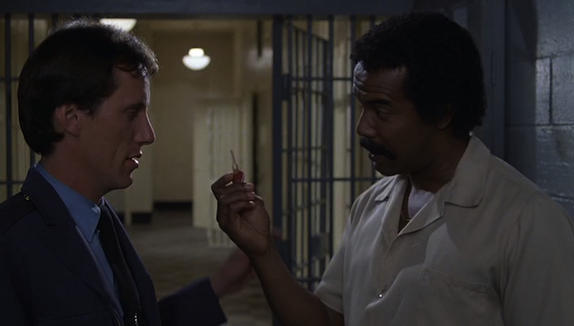
Fast-Walking (1982) probably doesn’t come up too much when people think of prison films, being one of more offbeat, forgotten examples of the genre. Director James B. Harris has had a curious career: he’s only made five movies in a span of 30 years, and he might still be better known for co-producing Stanley Kubrick’s Paths of Glory. But this cool little flick, based on the Ernest Brawley novel The Rap, is the best thing he’s done (with Cop a close second), full of irresistible pulpy moments, lightly comic touches and fantastically amoral characters.
Viewers expecting a straightforward, hard-hitting prison drama might be taken aback by Fast-Walking’s leisurely pace and surprisingly serpentine neo-noir plot — involving an assassination attempt on an African-American revolutionary (Robert Hooks) — but the company is unbeatable: James Woods is at his most endearingly weaselly, Kay Lenz burns the screen up with her foxy duplicitousness, and Tim McIntire steals the show as a charismatic, loquacious neo-Nazi.
AMERICAN ME

Part prison, part gangster pic, American Me (1992) was the directorial debut of actor Edward James Olmos (Battlestar Galactica), who strangely, given the strength of this film, hasn’t gone on to have a fruitful career behind the camera. Though far from perfect, it’s a passionate, grim, often brutal chronicle of the rise of the Mexican Mafia in Folsom State Prison in the ‘50s through to the ‘80s. Olmos plays mob boss Montoya Santana with stony conviction, befitting a man who built a ruthless drug empire from within prison walls. William Forsythe is compellingly vile as his sidekick JD.
I’ll give Olmos this: he didn’t hold back. Shankings and rapes galore here, and there’s a jaw-dropping, admittedly overblown sequence where Santana is making “proper” love for the first time that’s cross-cut with a dude getting assaulted in the ass by Santana’s gang. The finale is just so goddamn bleak, a devastating gut-punch that highlights the troubling cycle of violence afflicting gangs and their kin. One of American Me’s producers is Robert M. Young, who also made Short Eyes (1977), another great prison movie worth hunting down (starring Bruce Davison as a pedophile!).
What are some of your favourite prison movies?

